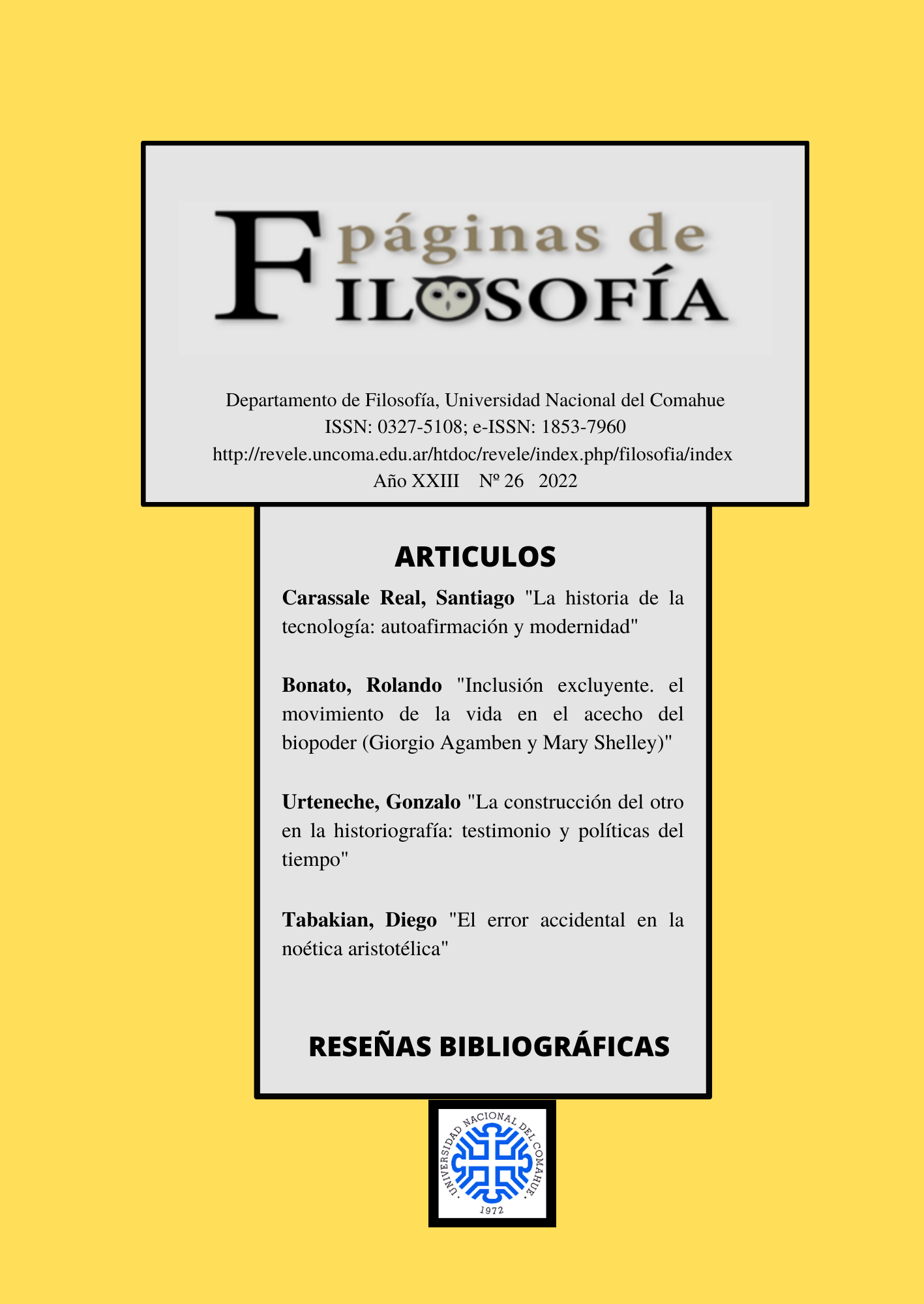The History of Technology
Self-assertion and Modernity
Keywords:
Technology, History, Modernity, Anthropology, BlumenbergAbstract
The objective of this work is to propose that technology is a historical phenomenon, based on social and intellectual assumptions. Hans Blumenberg's observations around a spiritual history of technology, which displace anthropological as well as scientist perspectives of technology, constitute a fundamental touchstone. Thus, Blumenberg places the emergence of technology in his analyses of the transition from the Middle Ages to Modernity, underlining how the concern for the theology of the creation of late scholastics is called into question and a new path opens that will consist of the self-affirmation of the human being. It is in this change of epoch that technology acquires a new status, previously unthinkable, as a way of self-affirmation of the human being. The spiritual history of technology discards, on the one hand, the history of inventors and inventions, and on the other hand denies the position that technology is a mere application of science. On the contrary, its “spiritual” imprint refers to the investigation of the historical assumptions that make such an emergency possible and the receptions/innovations that technology has produced.
Downloads
References
- Blumenberg, H. (1999), ““Imitación de la naturaleza.” Acerca de la prehistoria del hombre creador” pp. 73-114, en Blumenberg H., Las realidades en que vivimos. Barcelona, Paidós.
- Blumenberg, H. (2020a), “Ordnungschwund und Selbstbehauptung. Über Weltverstehen und Weltverhalten im Werden der technischen Epoche”, en Blumenberg, H., Schriften zur Technik, Berlin, Suhrkamp, pp. 99-136.
- Blumenberg, H. (2020b), “Einige Schwierigkeiten, eine Geistgeschichte der Technik zu schreiben”, en Blumenberg, H., Schriften zur Technik, Berlin, Suhrkamp, pp. 7-48.
- Blumenberg, H. (2020c), “Methodologische Probleme einer Geistgeschichte der Technik”, en Blumenberg, H., Schriften zur Technik, Berlin, Suhrkamp, pp. 49-98.
- Blumenberg, H. (2008), La Legitimación de la Edad Moderna, España, Pre-Textos.
- Descartes, R. (1985), Principles of Philosophy, en Descartes, R., Philosophical Writings, New York, Cambridge University Press.
- Goethe, J. W. (2017), Poesía y Verdad, Barcelona, Alba Editorial.
- Hegel, G.W. (1993), Lógica, Buenos Aires, Ediciones Solar.
- Kant, I. (1970), Philosophical Correspondence, 1759-99, Chicago, University of Chicago Press.
- Leroi-Gourhan, A. (1984), Las raíces del mundo, Barcelona, Juan Granica Editores.
Published
How to Cite
Issue
Section
ARK
License
Copyright (c) 2023 Páginas de Filosofía

This work is licensed under a Creative Commons Attribution-NonCommercial-ShareAlike 4.0 International License.

